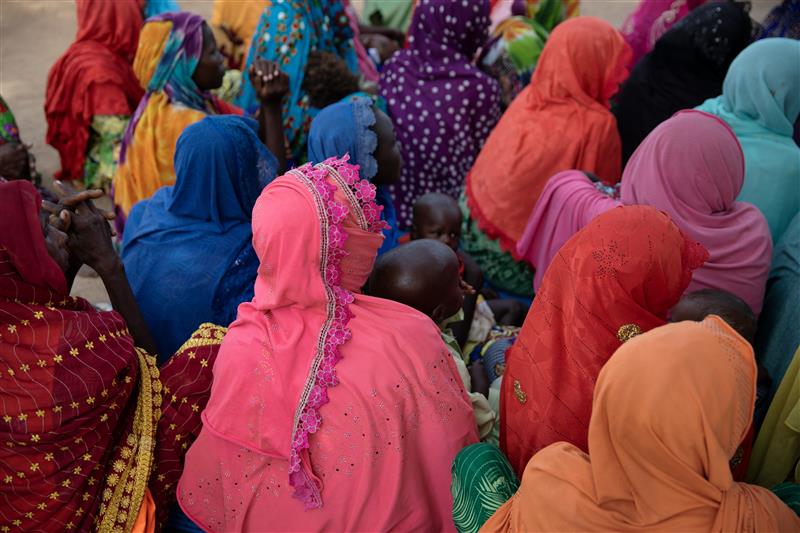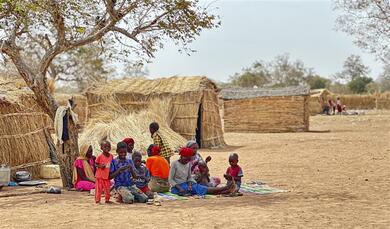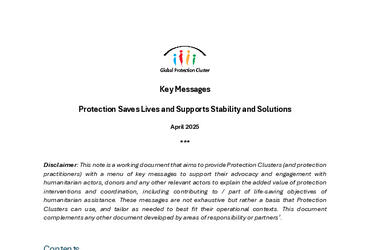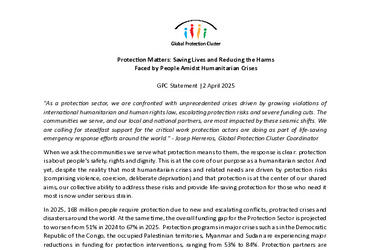The Humanitarian Reset
In a letter to the IASC Principles on 10 March 2025, the OCHA’s Emergency Relief Coordinator, Mr Tom Flecther, announced the launch of a process - The Humanitarian Reset - to improve the efficiency of the humanitarian system. The Humanitarian Reset looks at the following possible actions: localisation, HPC prioritisation, life-saving actions, reform initiatives (JIAF 2.0, HPC reform, flagship, IDP solutions), cluster simplification and streamlining, IASC reform.
The ERC has also ask to reduce inefficiency, duplication and bureaucracy (see OCHA - A simplified and more efficient humanitarian system)
Protection is a Priority in Humanitarian Action
Most humanitarian crises are protection crises, even if not acknowledged as such. Violations of international law and patterns of abuse, violence, coercion, deliberate deprivation, exploitation, and exclusion are often the drivers of other humanitarian needs, and further exacerbate them. Failing to adequately consider protection in emergency interventions is detrimental to the entire humanitarian response and, ultimately, affected populations.
As part of the efforts to advocate for protection as a priority in humanitarian action, the GPC has published a global statement and key advocacy messages. Specific guidance has been provided to Cluster Coordination teams on navigating the different prioritisation efforts. See Guidance on Prioritisation of Protection Response Activities at Country-Level.
Impact of Funding Cuts on Protection
In 2024, the Global Protection Cluster received $1.7 billion in humanitarian financing. This fell short of the $3.5 billion funding requirement – by 51%. The projections for 2025 indicate there will be an even more severe gap in protection funding, with projected shortfalls averaging 67% across major humanitarian crises.
The GPC has conducted an in depth analysis of available data and developed two projections—one based on 30% funding reductions compared to 2024, and a second based on a 50% funding reduction model. This analysis projects the potential impact on country operations and key protection activities. See Funding Analysis and Protection Risk - Understanding the Link and Cost of Inaction.
The GPC continues to consult global protection partners to understand the impact of foreign aid cuts on their protection programmes and their operational planning for 2025/2026.
Cluster and Programming Transitions/Closing
Amid ongoing humanitarian reform and significant cuts to foreign aid funding, protection clusters and their partners must navigate complex transitions and potential program closures. These shifts require careful planning to minimize disruptions to affected populations and ensure that critical protection services remain accessible where possible. The GPC published a short guidance to Protection Cluster coordination teams on how to engage partners in structured discussions for any closure of their protection programming. See Guidance on Sudden Programme Closure.
In 2025, the transition of Protection Clusters will take place against the backdrop of ongoing humanitarian reform and shifting aid priorities. As funding constraints and localization efforts reshape the humanitarian landscape, Protection Clusters must adapt their coordination mechanisms to ensure continuity of critical services, and that coordination is in line with the operational needs of our partners. See Note on Protection in Humanitarian Coordination Transitions.








